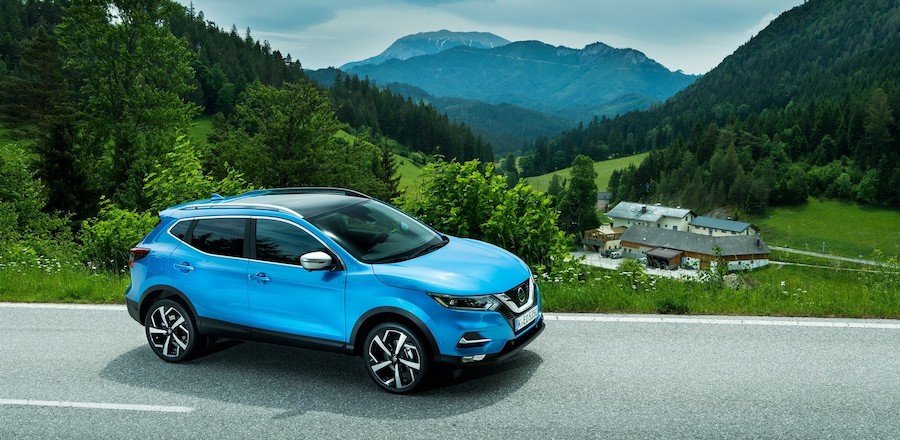2022 Nissan Qashqai Will Be Made in the UK for European Customers

2019 sales totaled 260,428 examples of the breed, a contraction of 6.2 percent over 2018. The Volkswagen Tiguan bettered Nissan with 297,224 units last year, but the Qashqai promises to take back its crown in 2022 with the introduction of the all-new Gen 3.
Like the original, the Gen 2 is manufactured in the United Kingdom in addition to a few other locations around the world. The second generation came out in 2013, meaning that it’s high time for Nissan to replace its golden goose with a more golden goose.
In an apparently uninteresting press release about a 400-million pounds sterling investment into Sunderland, the Japanese automaker has confirmed that the 52-million XL press line will stamp the panels of the third generation. Weighing in at more than 2,000 tonnes, the press took 18 months to install. Capable of stamping more than 6.1 million panels per year, the press has a maximum combined force of 5,400 tonnes.
“When the first Nissan Qashqai rolled off the line in Sunderland in 2006 it created the crossover segment,” said chief operating officer Ashwani Gupta. “Designed, engineered and made in the UK, and more than three million vehicles later, it remains the benchmark.” The question is, what can we expect from the next-gen Qashqai?
British motoring publication Auto Express understands that the newcomer will arrive at dealers for the 2022 model year, meaning that production is likely to start in 2021. An official statement from Nissan regarding hybrid and plug-in hybrid powertrains leaves little to the imagination of future customers and expecting enthusiasts, more so if you take a look at the E-Tech hybrids and plug-in hybrids from Renault.
E-Power is how Nissan calls these eco-friendly powertrains, and the hybrid is understood to be a serial hybrid. This design allows the Qashqai to function like a range-extended EV, a similar setup to the Chevrolet Volt and the Japan-only Versa Note e-Power. The latter is a high-roofed hatchback that combines a three-cylinder engine with 1.2 liters of displacement, an e-motor, and a 1.5-kWh battery of the lithium-ion type.
Hearsay further suggests that Nissan won’t offer a turbo diesel in the Gen 3, which sounds right if you take a look at the rest of the industry. In addition to the increasing costs of making diesel engines cleaner than ever before, the 2021 fleet average of 95 grams of CO2 per kilometer favors electrified solutions over compression ignition.
